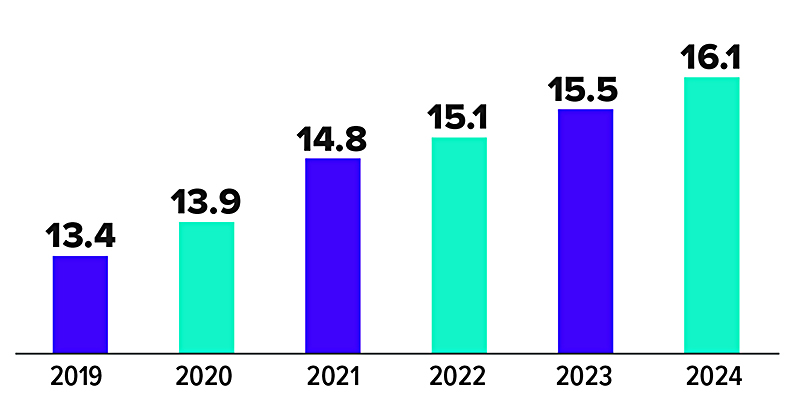
May 2025 – Versatile 529 Plans Can Help with More than Just College
By Matthew Wisehaupt on May 12, 2025
529 plans were originally created in 1996 as a tax-advantaged way to save for college. Over the past several years, Congress has expanded the ways 529 plan funds can be used, making them a more flexible and versatile savings vehicle.
College, plus other education expenses
A 529 savings plan can be instrumental in building a college fund — its original purpose. Funds contributed to a 529 savings plan accumulate tax-deferred and earnings are tax-free if the funds are used to pay qualified education expenses, which now include:
- College expenses: the full cost of tuition, fees, books, and equipment (including computers) and, for students attending at least half time, housing and food costs at any college in the U.S. or abroad accredited by the U.S. Department of Education
- Apprenticeships programs: the full cost of fees, books, and equipment for programs registered with the U.S. Department of Labor
- K-12 tuition expenses: up to $10,000 per year
If 529 funds are used to pay a non-qualified education expense, the earnings portion of any withdrawal is subject to ordinary income tax and a 10% penalty.
Estate planning tool
529 plans offer grandparents an opportunity to save for a grandchild’s education in a way that accomplishes estate planning goals, while still allowing grandparents access to those funds if needed.
Specifically, due to an accelerated gifting feature unique to 529 plans, grandparents (or other relatives) can contribute a lump sum to a 529 plan of up to five times the annual gift tax exclusion and avoid gift tax by making an election on their tax return to spread the gift equally over five years. In 2025, the gift tax exclusion is $19,000, so grandparents could gift up to $190,000 to a 529 plan for their grandchild ($19,000 x 5 years x 2 grandparents) and avoid gift tax. These funds are not considered part of the grandparents’ estate for federal estate tax purposes (unless one or both grandparents die in the five-year period, in which case special allocation rules apply). And if a grandparent is also the account owner of the 529 plan (529 plan rules allow only one account owner), then the grandparent will retain control of the 529 plan funds (even though the funds are not considered part of the estate) and can access them for health-care needs, an emergency, or any other reason (but the earnings portion of any non-qualified withdrawal will be subject to ordinary income tax and a 10% penalty).
Student loan repayment
Nearly 43 million borrowers have student loans, and the average loan balance is approximately $38,000.1 To help families who might have leftover 529 funds after college, Congress expanded the approved use of 529 plan funds in 2019 to include the repayment of qualified education loans up to $10,000 for the 529 beneficiary or a sibling of the beneficiary. This includes federal and private loans.
Number of 529 savings plan accounts, 2019–2024, in millions

Retirement builder: Roth IRA rollover
As of 2024, 529 account owners can roll over up to $35,000 from a 529 plan to a Roth IRA for the same beneficiary. Any rollover is subject to annual Roth IRA contribution limits, so $35,000 can’t be rolled over all at once. For example, in 2025, the Roth IRA contribution limit is $7,000 (for people under age 50) or 100% of annual earned income, whichever is less, so that is the maximum amount that can be rolled over in 2025.
There are a couple of other caveats. For the rollover to be tax- and penalty-free, the 529 plan must have been open for at least 15 years. And contributions to a 529 account made within five years of the rollover date can’t be rolled over — only contributions outside the five-year window can be rolled over.
Participation in a 529 plan generally involves fees and expenses, and there is the risk that the investments may lose money or not perform well enough to cover college costs as anticipated. The tax implications of a 529 plan can vary significantly from state to state. Most states offering their own 529 plans may provide advantages and benefits exclusively for their residents and taxpayers, which may include financial aid, scholarship funds, and protection from creditors. Before investing in a 529 plan, consider the investment objectives, risks, charges, and expenses, which are available in the issuer’s official statement and should be read carefully. The official disclosure statements and applicable prospectuses contain this and other information about the investment options, underlying investments, and investment company and can be obtained from your financial professional.
1) educationdata.org, 2024